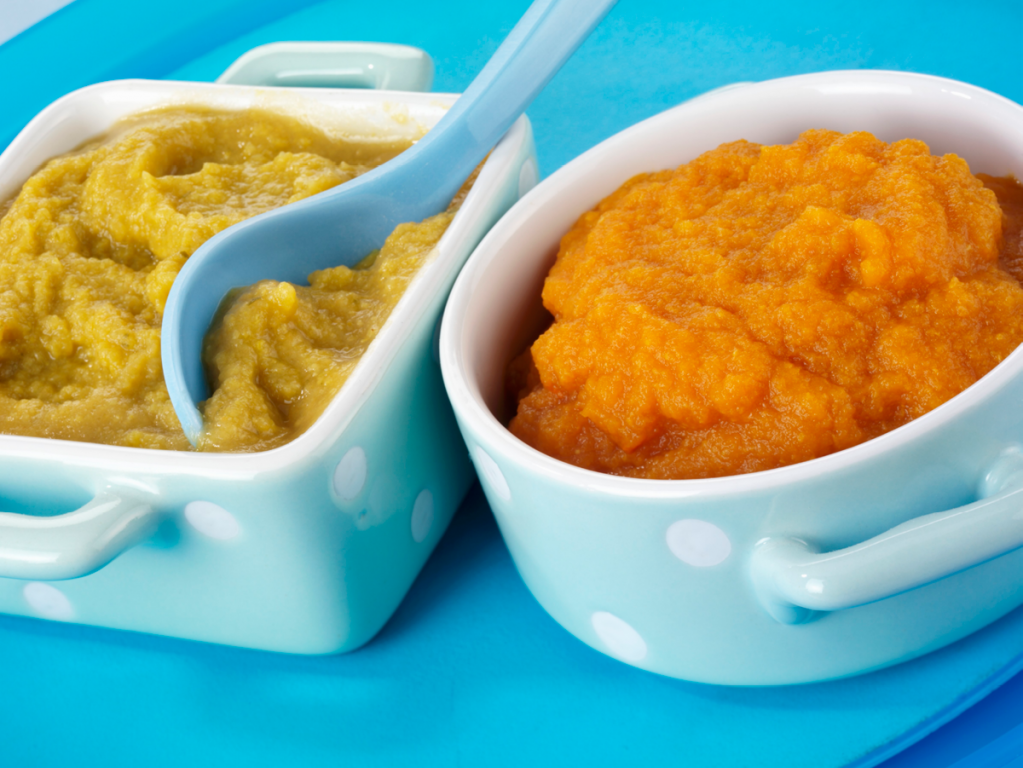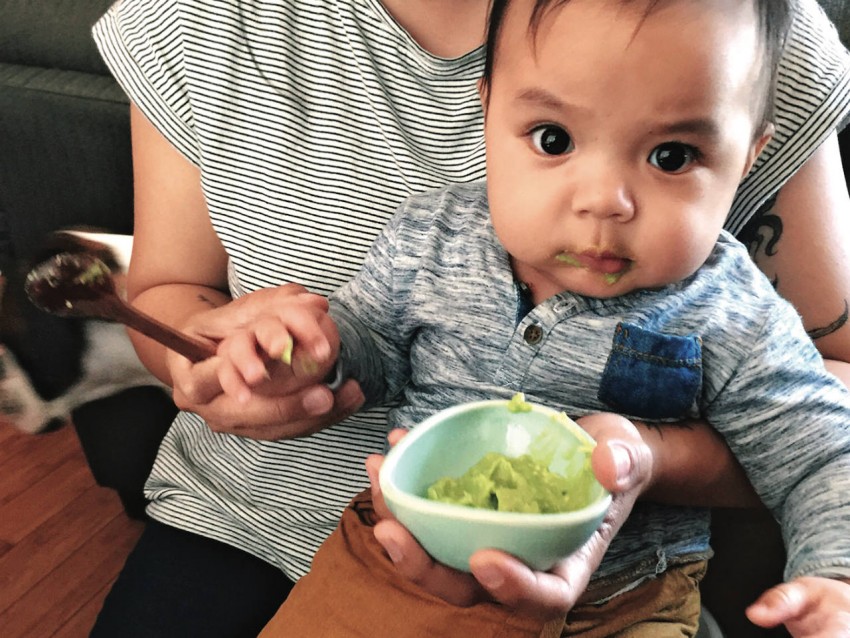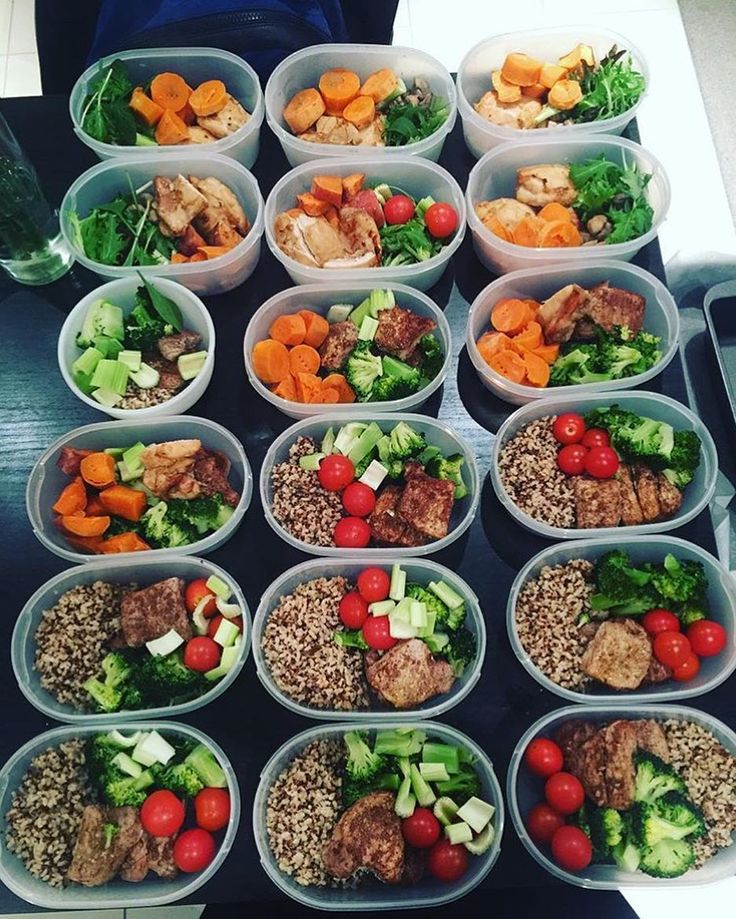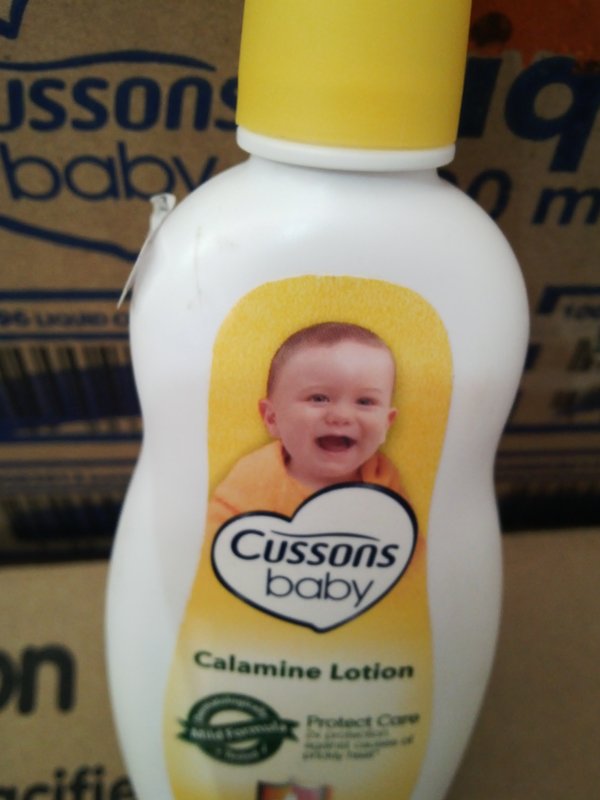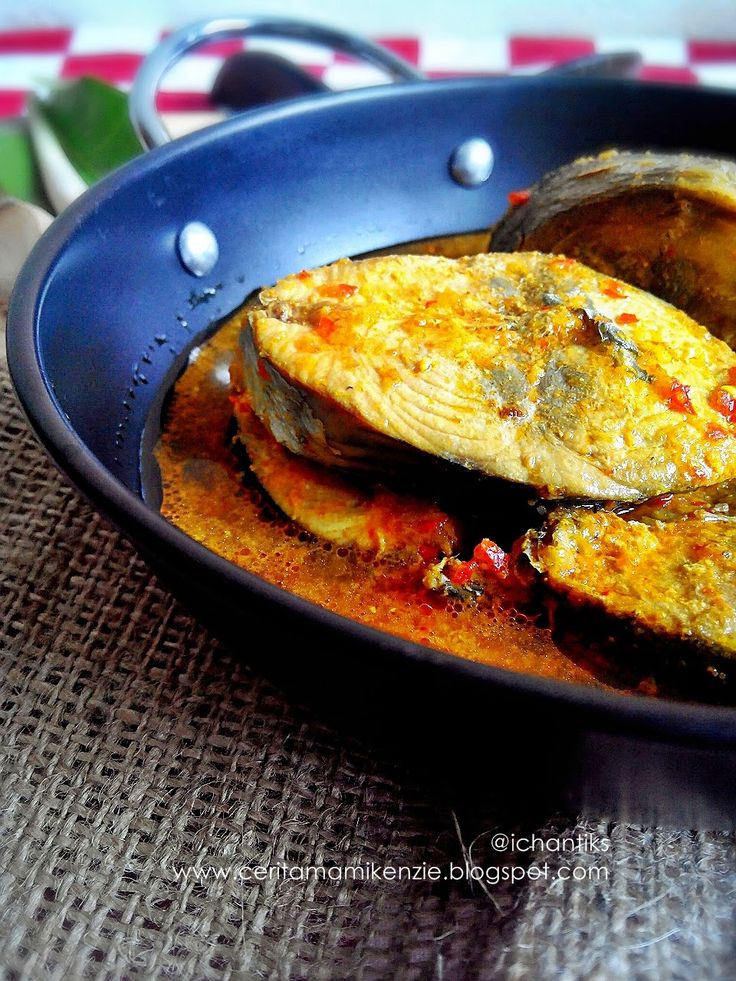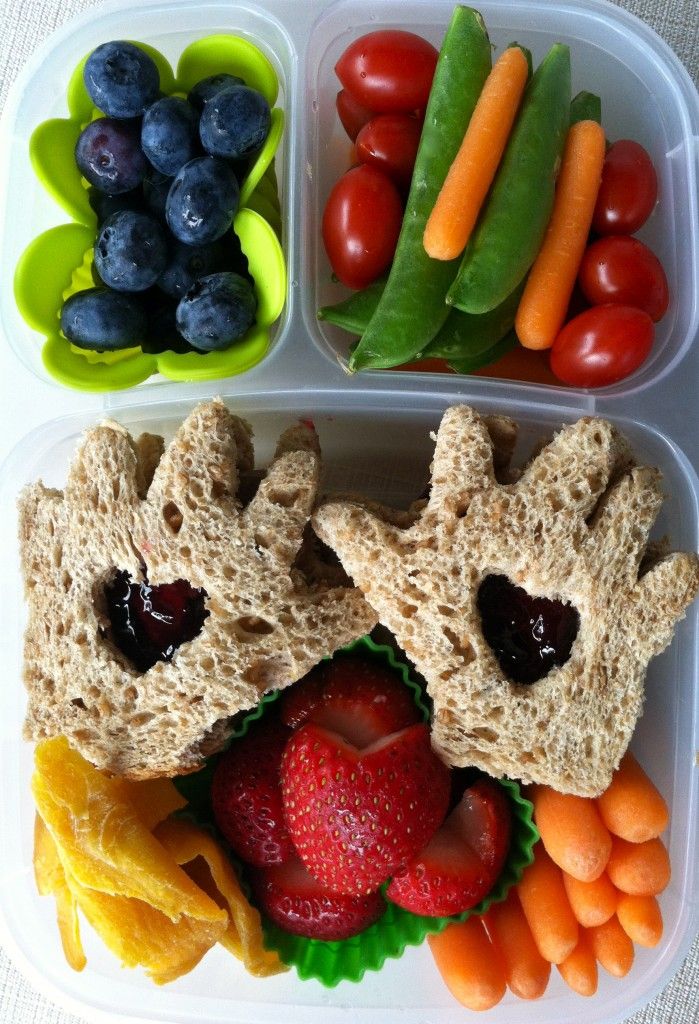News baby food
Homemade baby food contains as many toxic metals as store bought, report says
CNN —
Making baby food at home with store-bought produce isn’t going to reduce the amount of toxic heavy metals in the food your baby eats, according to a new report released exclusively to CNN.
“We found no evidence to suggest that homemade baby foods made from store-bought produce are better than store-bought baby foods when it comes to heavy metal contamination,” said the paper’s coauthor Jane Houlihan, research director for Healthy Babies, Bright Futures. An alliance of nonprofits, scientists and donors, HBBF, which produced the report, has a stated mission of reducing babies’ exposures to neurotoxic chemicals.
READ MORE: Manufacturers allowed baby food contaminated with heavy metals to remain on shelves, lawmakers say
Researchers tested 288 foods bought at stores and farmers markets across the United States – including grains, fruits, vegetables, snacks, teething foods, and family items that babies eat, such as cereals and rice cakes – for lead, arsenic, mercury and cadmium. Those heavy metals are among the World Health Organization’s top 10 chemicals of concern for infants and children.
“Toxic metal exposure can be harmful to the developing brain.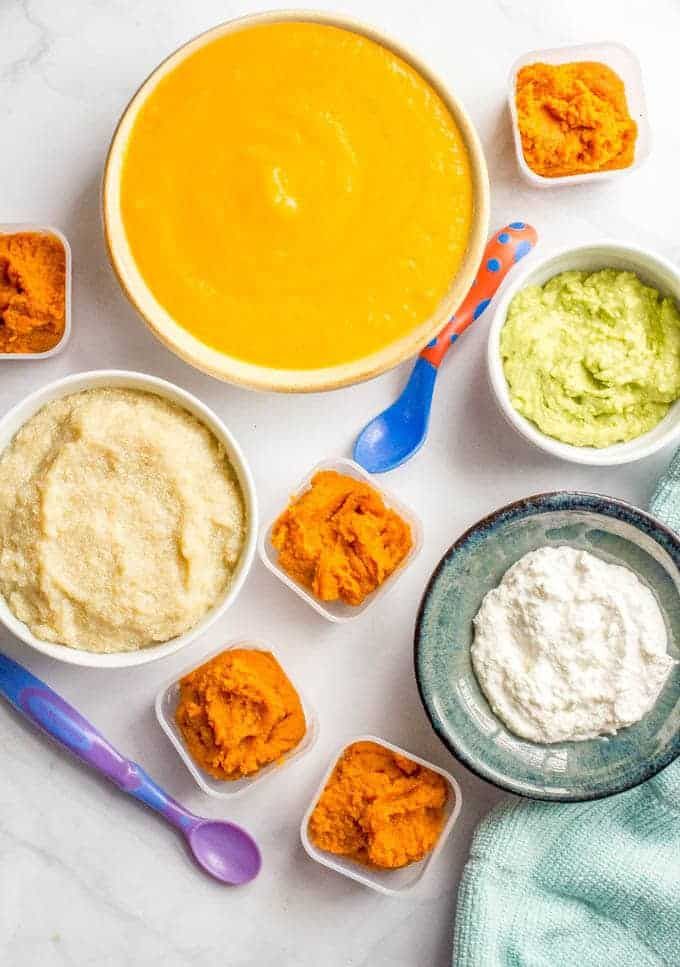 It’s been linked with problems with learning, cognition, and behavior,” according to the American Academy of Pediatrics.
It’s been linked with problems with learning, cognition, and behavior,” according to the American Academy of Pediatrics.
Researchers also pored over data from 7,000 additional food tests reported in published studies and by the US Food and Drug Administration.
Results showed 94% of manufactured baby foods, family foods and homemade purees made from purchased raw foods contained detectable amounts of one or more heavy metals.
Lead was found in 90% of manufactured baby food bought by shoppers for the report and 80% of store-bought family food and homemade purees.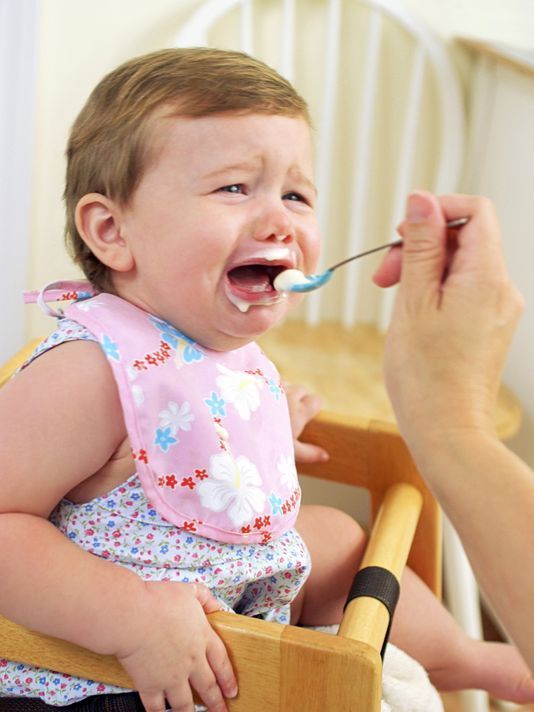 There is no safe level of lead, according to the AAP.
There is no safe level of lead, according to the AAP.
Arsenic was found in 68% store-bought baby food and 72% of family food either purchased or prepared at home. Cadmium was found in 65% of purchased baby food and 60% of family foods, and mercury was in 7% of store-bought baby food and 10% of family foods. (The highest levels of mercury are found in seafood, which was not tested in this analysis.)
READ MORE: 95% of tested baby foods in the US contain toxic metals, report says
The new report is a follow-up to a November 2019 report in which Healthy Babies, Bright Futures tested 168 foods purchased from major baby food manufacturers. That analysis found 95% of store-bought baby food contained lead, 73% contained arsenic, 75% contained cadmium and 32% contained mercury. One-fourth of the foods tested that year contained all four heavy metals.
That analysis found 95% of store-bought baby food contained lead, 73% contained arsenic, 75% contained cadmium and 32% contained mercury. One-fourth of the foods tested that year contained all four heavy metals.
“After that report we saw so many people saying you can get around this problem by making your own baby food at home, so we decided to check,” Houlihan said. “We suspected we’d find heavy metals in all kinds of food because they’re ubiquitous contaminants in the environment.
“And that is exactly what we found – heavy metals were in foods from every section of the store,” Houlihan said. “What this says is that as the FDA is setting standards for heavy metals in baby food, they need to go beyond the baby food aisle.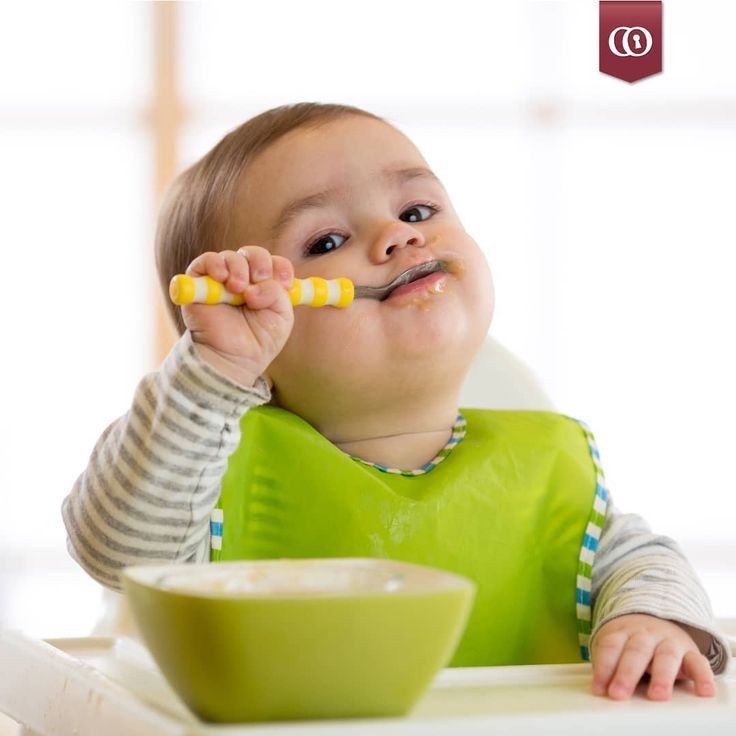 ”
”
What’s a parent or caregiver to do? Feed baby with as many different types of foods as possible, said pediatrician Dr. Mark Corkins, chair of the Committee on Nutrition of the American Academy of Pediatrics. He was not involved in the study.
“If you spread foods out, and offer a wide variety of options, you’ll have less toxicity,” Corkins said. “And nutritionally that’s always been the right thing to do to get the most micronutrients from the food you eat.”
The report found buying organic didn’t lower heavy metal levels either, which was “not shocking or surprising,” said Corkins, a professor of pediatrics at the University of Tennessee Health Science Center and Le Bonheur Children’s Hospital in Memphis, Tennessee.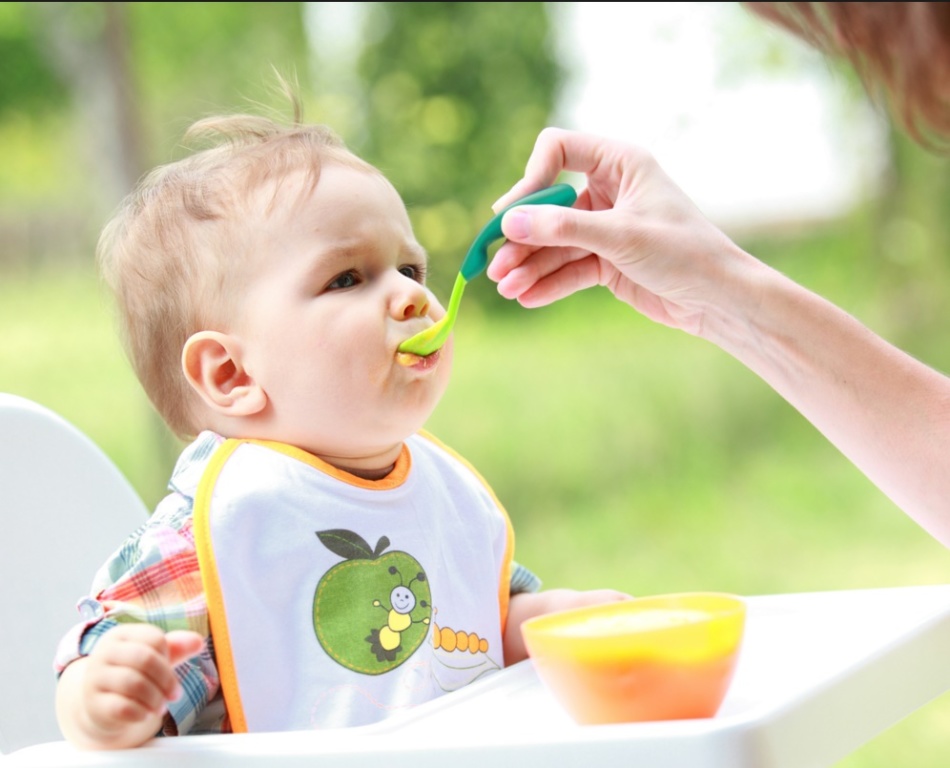
“It’s the soil and water that’s contaminated with arsenic and other heavy metals, so it doesn’t matter if it’s organic or traditional farming methods,” Corkins said. That would apply to locally grown crops or even backyard gardens, if the soil had not been verified to be metal-free.
However, buying organic can help avoid other toxins the new report did not consider, such as herbicides and pesticides, said Dr. Leonardo Trasande, director of environmental pediatrics at NYU Langone Health. He was not involved in the study.
“There are other benefits to eating organic food, including a reduction in synthetic pesticides that are known to be as bad for babies, if not even more problematic,” Trasande said.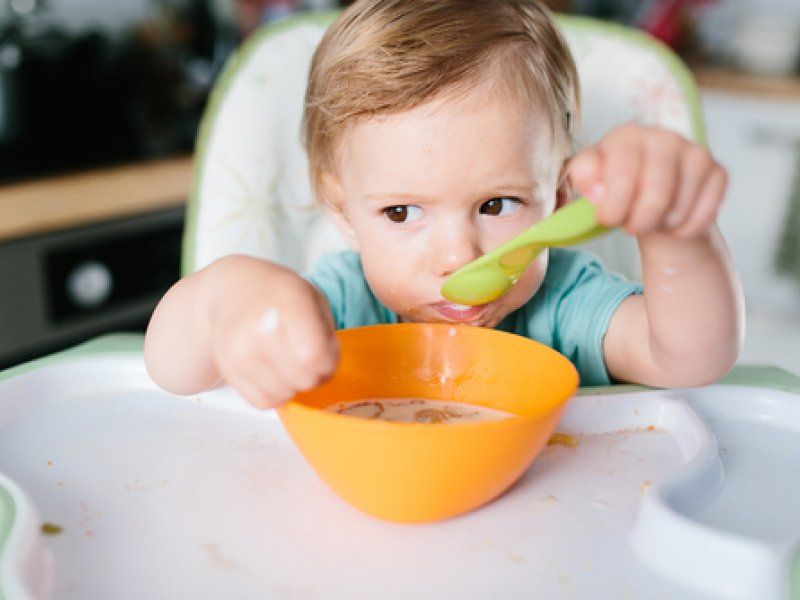
READ MORE: Doctors should test levels of PFAS in people at high risk, report says
“We’ve seen multiple studies show significant effects of synthetic pesticides on cognitive function in children as a result of prenatal exposure. We’ve seen images of the brain where certain parts are smaller that are crucial for higher order functioning after exposure,” he added. “A simple step would simply be to say eat organic because regardless of anything we’re talking about in this report, it’s good for you.”
Experts agree that battling toxins in baby foods is a job for government organizations who will need to work with growers, suppliers and manufacturers to institute regulations and safeguards. In the meantime, parents can make a difference.
In the meantime, parents can make a difference.
“Making even one simple choice every day to lower a child’s exposure will make a difference, whether that’s staying away from rice-based snacks and serving a diced apple instead or choosing not to serve carrots and sweet potatoes every day,” Houlihan said.
“With heavy metals and other toxins the risks add up over a lifetime,” she added. “So even if some of these foods had been served to a child up to their second birthday, starting from there to lower exposure to toxins is going to add up. Every choice matters.”
Tested foods with low metal content contain one-eighth as much heavy metal contamination as foods with the highest levels, Houlihan said.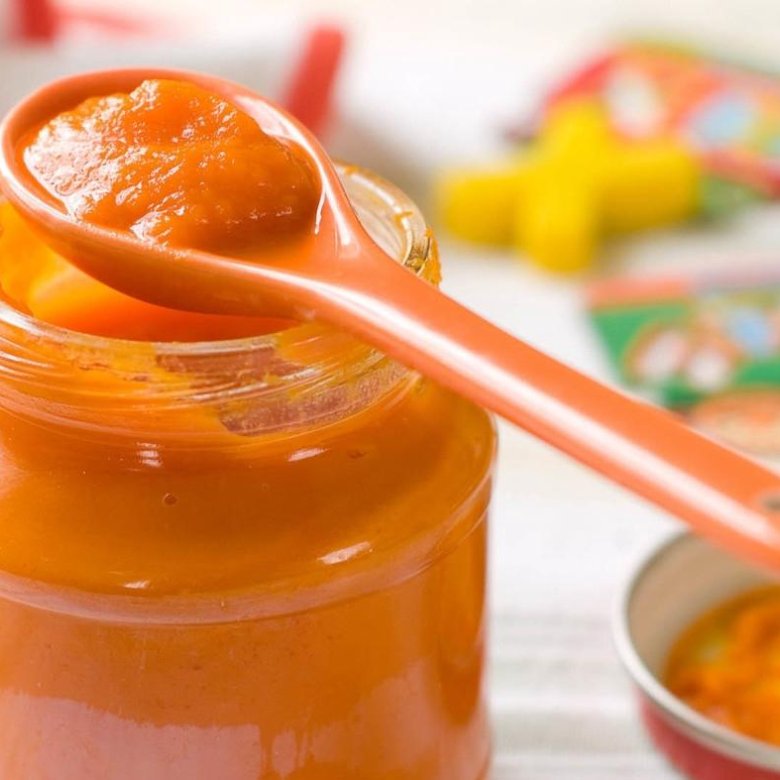 These are foods that can be “eaten freely,” the report suggested.
These are foods that can be “eaten freely,” the report suggested.
Fresh bananas, with heavy metal levels of 1.8 parts per billion, were the least contaminated of foods tested for the report. That’s an “82-fold difference in average level of total heavy metals” from the most contaminated food, rice cakes, which tested at 147 parts per billion, according to the investigation.
READ MORE: ‘Consider chemical hazards’ in the baby foods you sell, FDA warns manufacturers
After bananas, the least contaminated foods were grits, manufactured baby food meats, butternut squash, lamb, apples, pork, eggs, oranges and watermelon, in that order.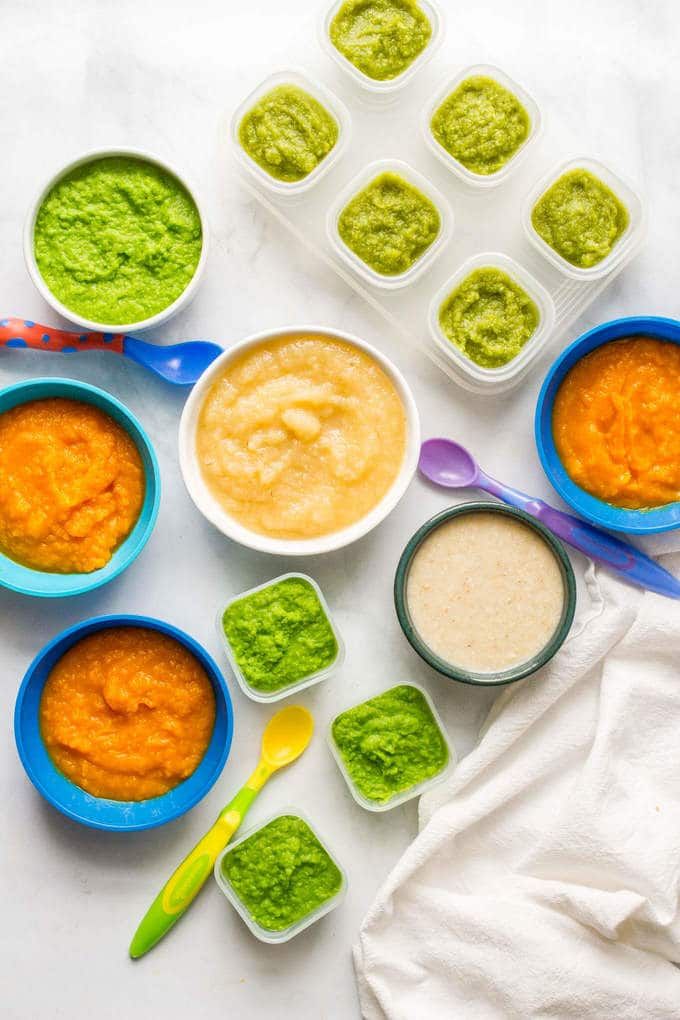 Other foods with lower levels of contamination included green beans, peas, cucumbers, and soft or pureed home-cooked meats, the report found.
Other foods with lower levels of contamination included green beans, peas, cucumbers, and soft or pureed home-cooked meats, the report found.
Infant formula made with lead-free tap water was recommended. Tap water that has been tested and is free of lead is always a good choice. Milk is also a good choice, but only for babies 12 months and older.
Some healthy lower-metal foods, such as yogurt, unsweetened applesauce, beans, cheese, hard-boiled eggs and grapes that have been cut lengthwise, were good choices for snacks for babies, according to the report.
Fresh and frozen fruit – including those used in homemade purees – were options as well. But don’t use canned fruits if you can avoid it: “Tests find lead 30 times more often in canned fruit than in fresh and frozen fruit,” the report stated.
But don’t use canned fruits if you can avoid it: “Tests find lead 30 times more often in canned fruit than in fresh and frozen fruit,” the report stated.
Parents and caregivers can also lower their baby’s exposure to heavy metals by making some smart substitutions, the report said.
Using a frozen banana for a teething baby instead of a rice-based teething biscuit or rice rusk could lower total intake of heavy metals by 95%, according to the report. Another suggested teething aid: peeled and chilled cucumber spears.
The most heavily contaminated foods eaten by babies were all rice-based: “Rice cakes, rice puffs, crisped rice cereals and brown rice with no cooking water removed are heavily contaminated with inorganic arsenic, which is the more toxic form of arsenic,” Houlihan said.
Arsenic is a natural element found in soil, water and air, and because rice is grown in water, it is especially good at absorbing inorganic arsenic. (“Inorganic” is a chemical term and has nothing to do with the method of farming.) Brown and wild rice are the worst offenders, as the bran contains the highest arsenic concentrations.
READ MORE: New FDA limits on arsenic levels in infant rice cereals don’t adequately protect children, critics say
Prior research has shown that even low levels of inorganic arsenic exposure can impact a baby’s neurodevelopment.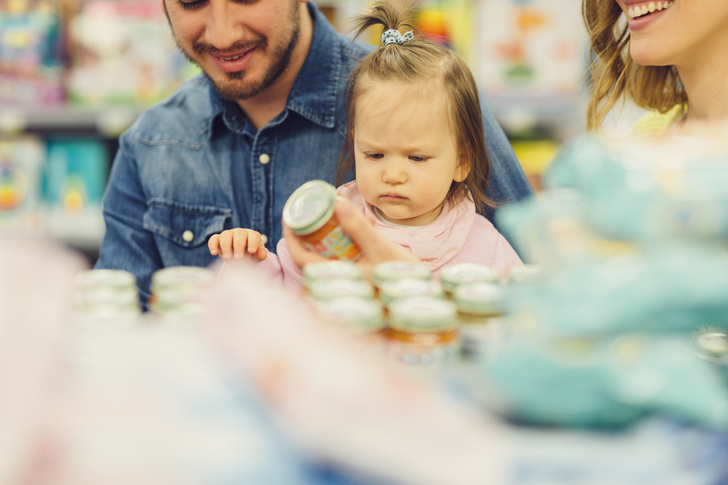 A meta-analysis of studies on the topic found a 50% increase in arsenic levels in urine would be associated with a 0.4-point decrease in the IQ of children between the ages of 5 and 15.
A meta-analysis of studies on the topic found a 50% increase in arsenic levels in urine would be associated with a 0.4-point decrease in the IQ of children between the ages of 5 and 15.
Testing by HBBF found rice cakes were the most contaminated with inorganic arsenic, followed by crisped rice cereal, rice-based puffs and brown rice. The report recommended those foods be avoided entirely, unless the brown rice is cooked with extra water that is poured off before consumption (much like pasta). It’s best to do that with all rice, including white and wild rice, the report said, as it can reduce arsenic levels by up to 60%.
Rice-based teething biscuits or rusks and white rice came next on the most contaminated list, the report said.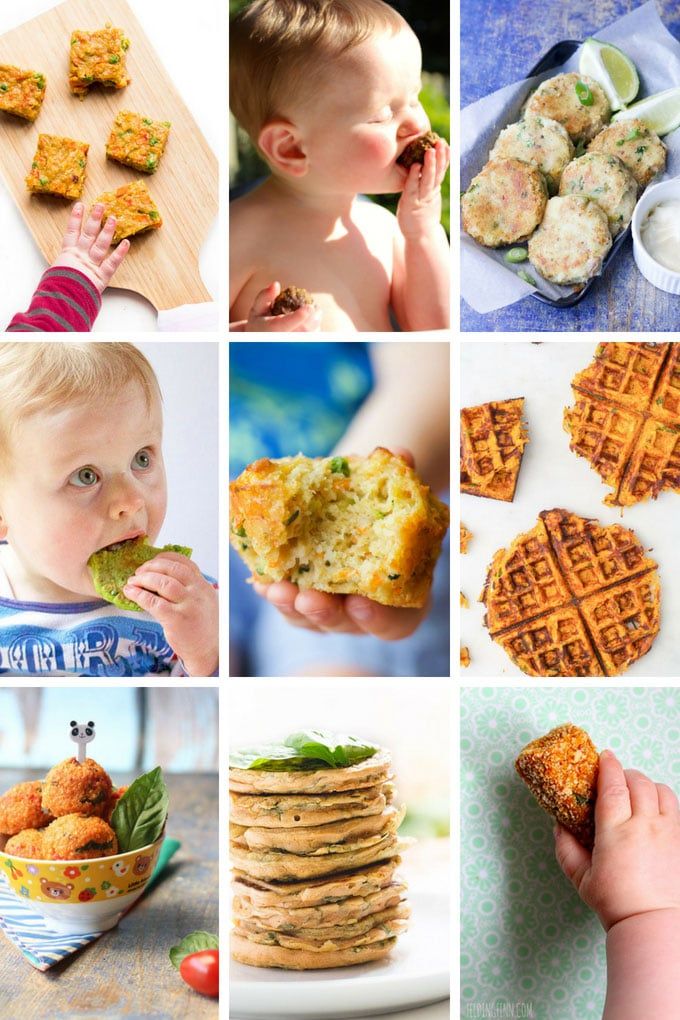 White rice is milled to remove the outer layers, but experts say arsenic levels remain high enough to be concerning, especially if rice is a daily staple.
White rice is milled to remove the outer layers, but experts say arsenic levels remain high enough to be concerning, especially if rice is a daily staple.
“Inorganic arsenic averaged 100 parts per billion in brown rice infant cereal and 74 parts per billion in white rice infant cereal in our tests,” Houlihan said. “Baby food companies have taken brown rice cereal off the market because of its high arsenic levels.”
READ MORE: Water- and stain-resistant products contain toxic plastics, study says. Here’s what to do
Parents and caregivers can help by staying away from high-arsenic varieties of white rice grown in Arkansas, Louisiana, Texas, or simply “US” and instead choosing lower-arsenic basmati rice from California, India and Pakistan, as well as sushi rice from the US, the report said.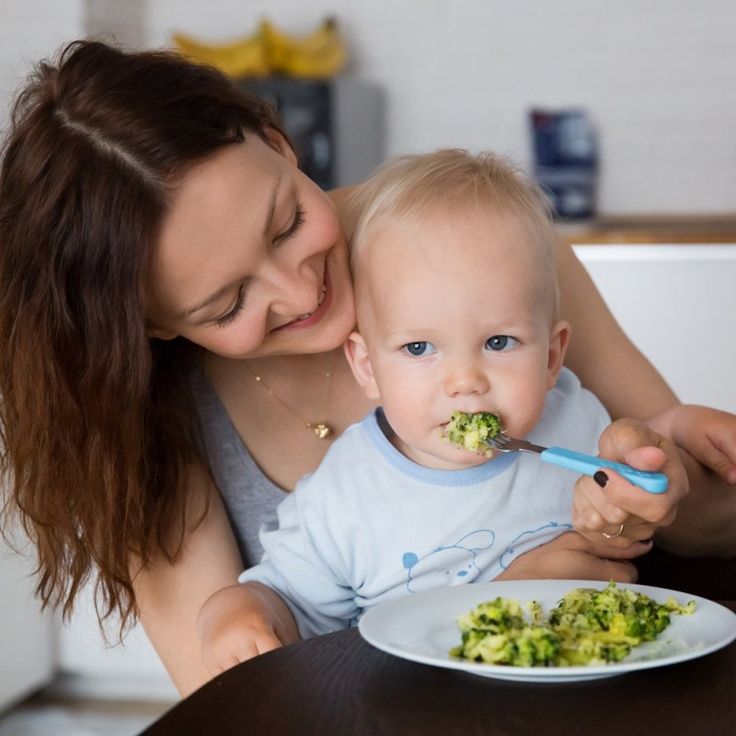
After rice-based foods, the analysis found the highest levels of heavy metals in raisins, non-rice teething crackers, granola bars with raisins and oat-ring cereals. But those were not the only foods of concern: Dried fruit, grape juice, arrowroot teething crackers and sunflower seed butter all contained high amounts of at least one toxic metal, according to the report.
“Many foods have a kind of unique, heavy metal profile,” Houlihan explained. “For example, we saw very high levels of cadmium in things like spinach, leaf lettuce and peanut butter.”
However, the human body doesn’t absorb cadmium as easily as other heavy metals, and for that reason “it doesn’t have as high a level of concern,” Houlihan added.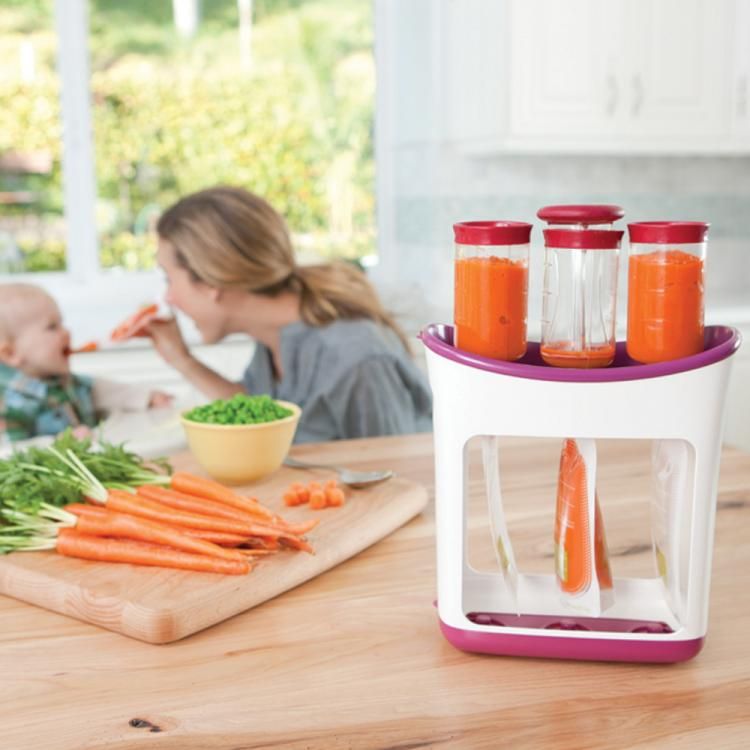
“There’s also not as much evidence that cadmium is neurotoxic to babies, or at least the body of evidence isn’t there at the same levels as lead and arsenic,” she said. “Lead and arsenic damage isn’t reversible – these are permanent impacts on IQ, learning ability and behavior, so it’s a big deal.”
Root and tuber vegetables may have higher levels of heavy metals like lead and arsenic because they grow underground. In fact, the investigation found that nutritious baby favorites like carrots, sweet potatoes, squash and many types of potatoes did have concerning levels of heavy metals.
READ MORE: Dangerous chemicals found in food wrappers at major fast-food restaurants and grocery chains, report says
Even the same food could have varying levels of toxic metals, according to the report. For example, a shopper in Raleigh, North Carolina, bought a sweet potato with 60.7 parts per billion of lead – 10 times more than the store-bought sweet potato puree she purchased. A Chicago shopper purchased a fresh carrot with eight times more arsenic than the premade carrot baby food she took home, the investigation found.
Yet shoppers in Tennessee and California found the opposite – their fresh produce had minimal levels of heavy metals compared with the manufactured baby food brands they bought.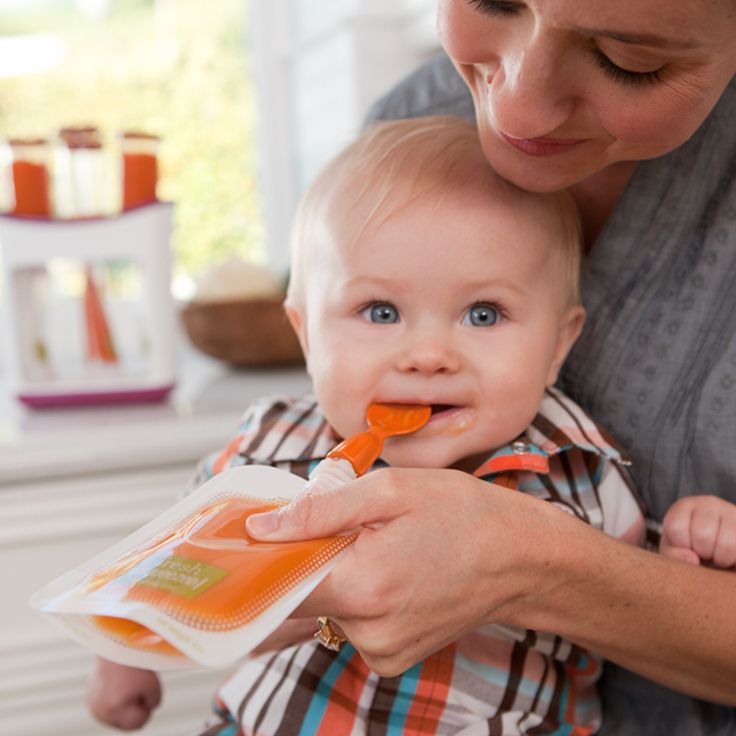
“As a parent, you don’t know what you’re picking up out of the produce bin,” Houlihan said. “Is it elevated because of the cultivar – the particular type of sweet potato or carrot? Or is it elevated because it’s grown in an area where the soil has naturally high levels of lead?
Answering these questions will be the responsibility of government regulators and industry, Houlihan said. The FDA has a Closer to Zero campaign, for example, which could take on the issue.
CNN has reached out to the FDA for comment but hasn’t yet received a response.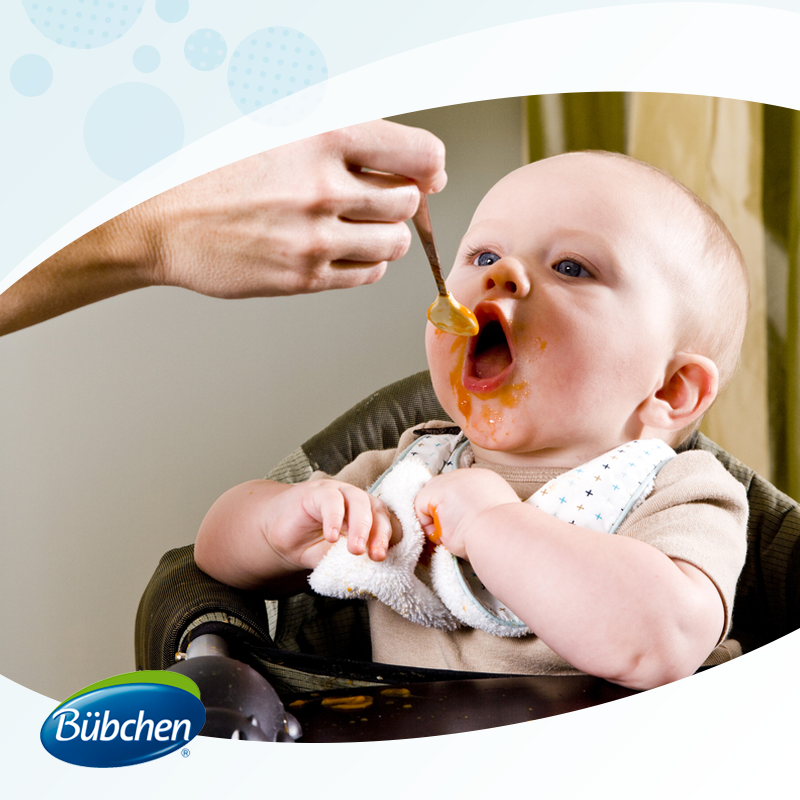
“And remember, if you’re protecting the basic ingredients that parents are using to make food at home, you’re not only protecting babies and toddlers, you’re protecting pregnant women as well. Babies in utero are particularly vulnerable to toxins while the brain is growing at such a rapid pace.”
With no way of knowing levels of toxic metals in the soil where produce is grown, parents and caregivers need to add one more step to their efforts to avoid these substances, Houlihan suggested. In addition to mixing up the variety of foods and not serving the same options each day, parents can “choose different brands or varieties of foods or shop in different stores from week to week to avoid choosing a high-metal source regularly.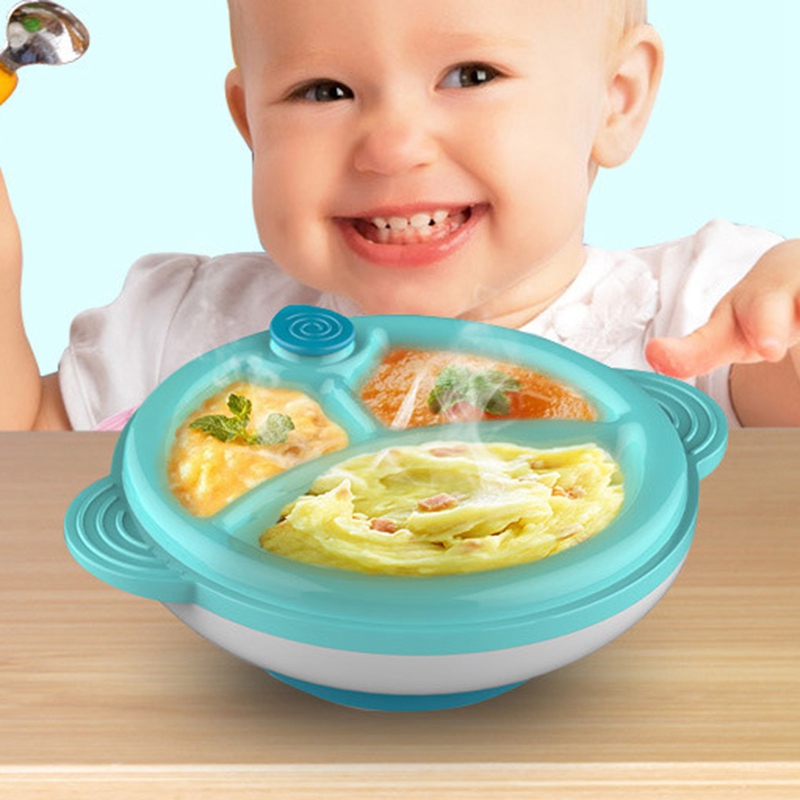 ”
”
Sign up for CNN’s Eat, But Better: Mediterranean Style. Our eight-part guide shows you a delicious expert-backed eating lifestyle that will boost your health for life.
Report Finds Heavy Metals in Both Store-Bought and Homemade Baby Foods – NBC4 Washington
Maryland dad Chris Vlcek takes his 7-month-old baby’s health very seriously. That’s why he and his wife use glass instead of plastic bottles, grow many of their own vegetables and prepare Adaleigh’s food from scratch.
“I think it's important to give her the best food that we can,” Vlcek, of Takoma Park, said.
But a recently released report from a child health watchdog group suggests even those steps might not be enough to keep heavy metals out of his baby’s diet.
In a study of 288 store-bought baby food and homemade purees, the nonprofit Healthy Babies Bright Futures found 94% of both types were contaminated with one or more toxic heavy metals, such as lead, arsenic, mercury or cadmium.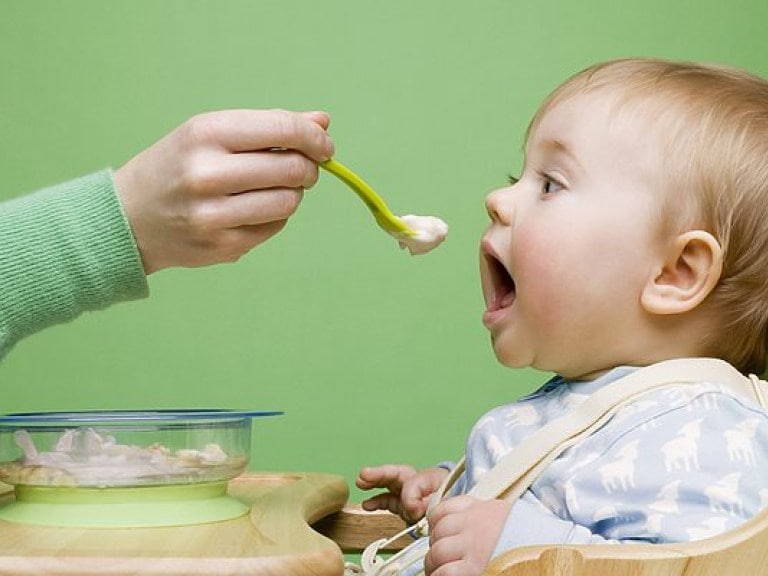
“We did not find any evidence that homemade baby food is, in general, any safer, with lower levels of toxic heavy metals, than the store-bought brands,” said Jane Houlihan, who led the study.
Despite the federal government setting limits for lead in drinking water and paint, Houlihan noted it has far fewer standards when it comes to regulating toxic metals in the food babies eat. High levels of toxic metal exposure have been linked to learning, cognitive and behavioral problems, according to the American Academy of Pediatrics.
“For many babies, food is a top source of exposure to these kinds of toxic chemicals that can harm brain development,” Houlihan said.
Local
Washington, D.C., Maryland and Virginia local news, events and information
In 2019, her organization found 95% of store bought baby foods were contaminated with heavy metals, which prompted their latest report on whether it’s better to make your own.
The new study, which also included examining more than 7,000 additional food testing data, led researchers to warn against serving rice cakes or crisped rice cereal, as samples showed they contained higher levels of inorganic arsenic than any other food tested.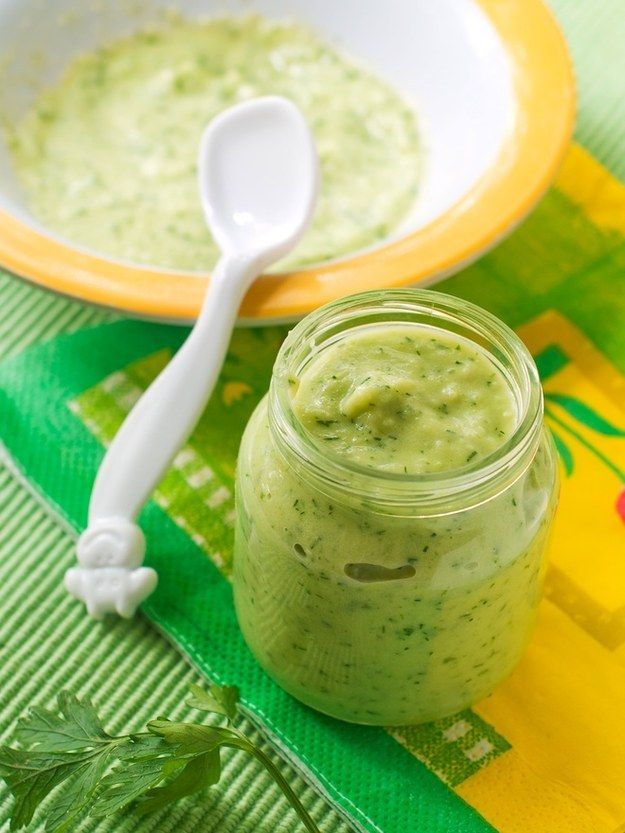
The organization is also recommending caregivers rotate where they buy and how often they serve vegetables such as carrots and sweet potatoes, which were found to have lead, arsenic and cadmium.
Meanwhile, Healthy Babies found bananas, baby food brand meats, apples, eggs and watermelon were among the least contaminated. In addition, it found no difference between foods purchased from organic and conventional food aisles.
“It really shows that it matters much more what types of foods parents serve than who makes that food,” Houlihan said.
That’s because much of the contamination comes from the soil, irrigation water or fertilizer used in farming practices, Houlihan said.
She’s among those calling on government regulators to set tougher safety standards for growers and food companies to reduce heavy metal toxins, noting that, after the FDA set limits on heavy metals in juices and infant rice cereal, it saw levels of metals like arsenic drop between 30 and 70%.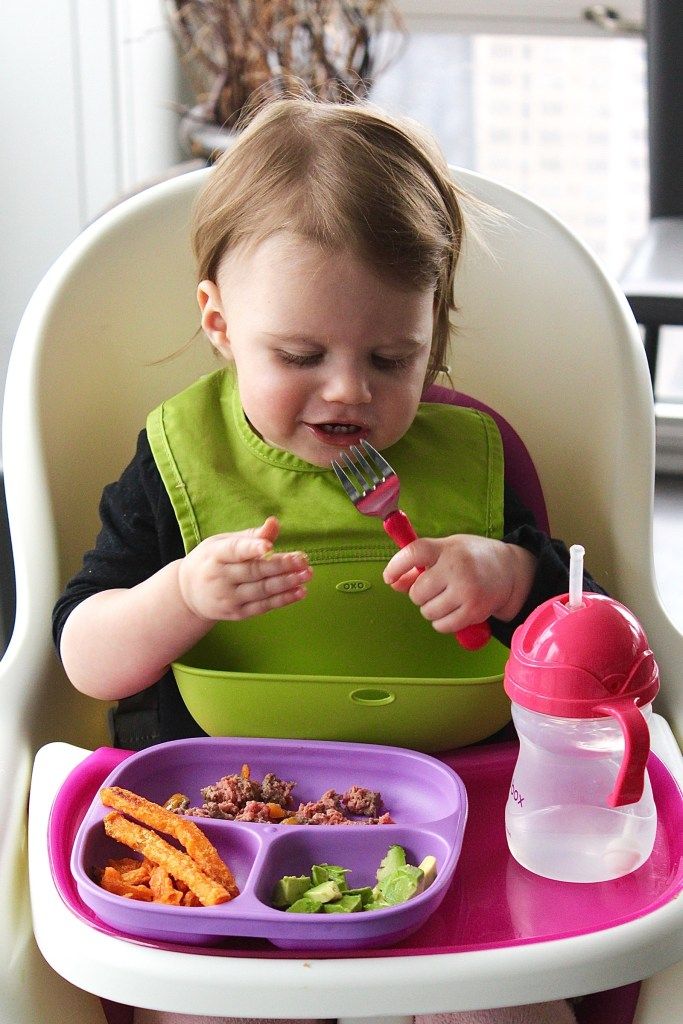
“We know there are things companies can do to reduce levels,” she said.
Illinois Congressman Raja Krishnamoorthi, whose House Subcommittee on Economic and Consumer Policy began investigating baby food manufacturers following Healthy Babies' 2019 report, said the findings underscore the need for government to step in.
“We need to hustle because parents really want choices that are healthier for their babies,” he said.
Last year the FDA announced a plan called “Closer to Zero” that will eventually set new standards for toxic metals in foods. Krishnamoorthi, along with a handful of other Democratic lawmakers, is also sponsoring legislation called the Baby Food Safety Act that would set toxic metal limits, increase FDA oversight and invest in farming technology and research to reduce heavy metals in crops.
“The FDA, for the first time, is taking this issue seriously,” Krishnamoorthi said. “We just want them to act faster, so we want to give them more resources to do so.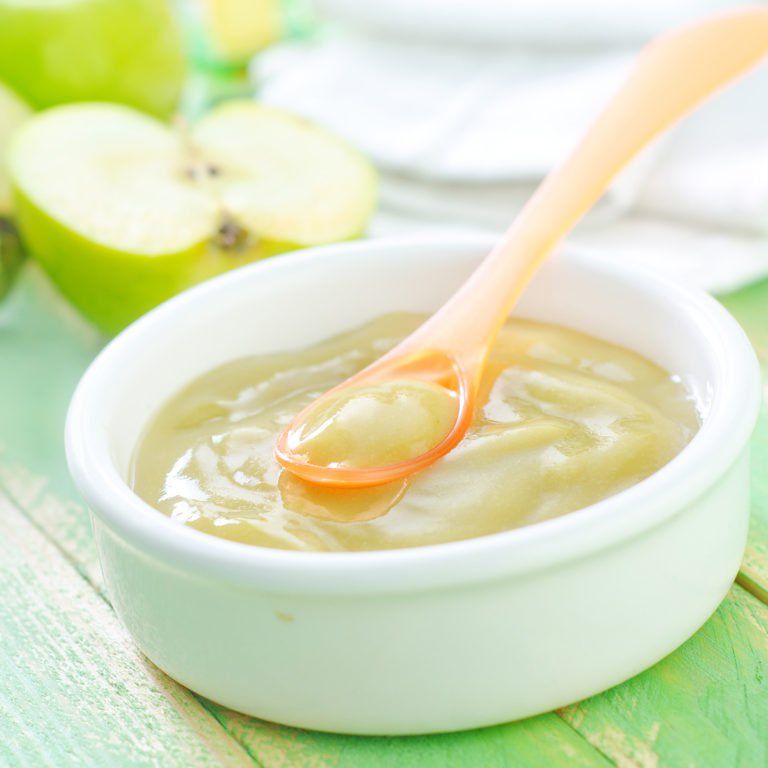 ”
”
In a lengthy statement, an FDA spokesperson said, “while we share the desire for reductions in exposure to these harmful elements as soon as possible, it takes time to develop necessary scientific data and information to establish action levels that are science-based and protective of public health.”
The spokesperson added that, in the meantime, “removing all foods with any level of a contaminant would result in widespread shortages of many foods, including many of the foods that contain nutrients vital to growth and development.”
News4 reached out to several baby food companies but only Beech-Nut and Gerber responded, both hailing the study as showing home-made foods aren’t necessarily safer.
“HBBF’s study reiterates the fact that heavy metals are present across the U.S. food supply,” said a spokesperson from Beech-Nut, adding: “While scientists work to minimize plants’ heavy metals uptake, today they are impossible to completely remove from the crops.”
Still, the spokesperson said the company is “committed to working” with the FDA on its “Closer to Zero” program.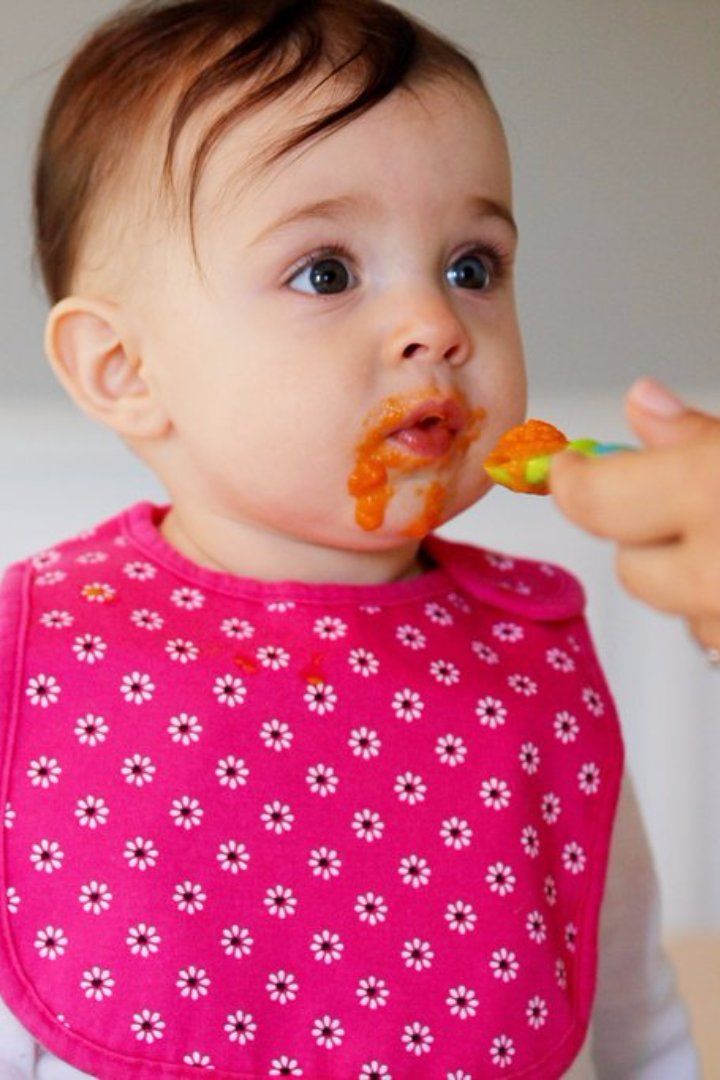
Gerber also said it supports reducing “the levels of heavy metals wherever possible.”
Vlcek, the Maryland dad, said his first reaction upon hearing the report was thinking: “This is terrible,” but he added he also wasn’t surprised given the heavy use of pesticides and chemicals in crops worldwide.
He plans to continue growing his own produce as much as possible, but notes he shouldn’t have to when it comes to reducing toxins in his baby’s diet.
“You should have a system that's designed to protect children, at a minimum,” he said.
- Variety is key: mix up what you serve and where you buy it
- Rinse rice and scrub and peel carrots and potatoes to remove as many heavy metals as possible
- Offer fresh or frozen produce over canned
- Serve water instead of juice
baby food news today
baby food news todaySociety September 19, 2022 20:23
Rospotrebnadzor in the Yamalo-Nenets Autonomous Okrug will check the message about a dead mouse found in baby food
A report of a dead mouse from baby food found in the Yamalo-Nenets Autonomous Okrug has attracted the attention of Rospotrebnadzor.
Incidents 06 June 2022 09:24
Gerber baby food label woman dies at age 95
Ann Turner Cook, who became the face of baby food firm Gerber in infancy, has died at the age of 96. It is reported by NBC News, citing a source in the company itself.
Society May 24, 2022 05:15
CBS audience criticizes aid to Ukraine amid US baby food shortage
The American television channel CBS New York published a video report on the arrival of US Navy military transport aircraft with batches of baby food from Europe. The story evoked an active response from readers.
Worldwide May 23, 2022 13:16
State of emergency declared in New York due to lack of baby food
Washington, 23 May.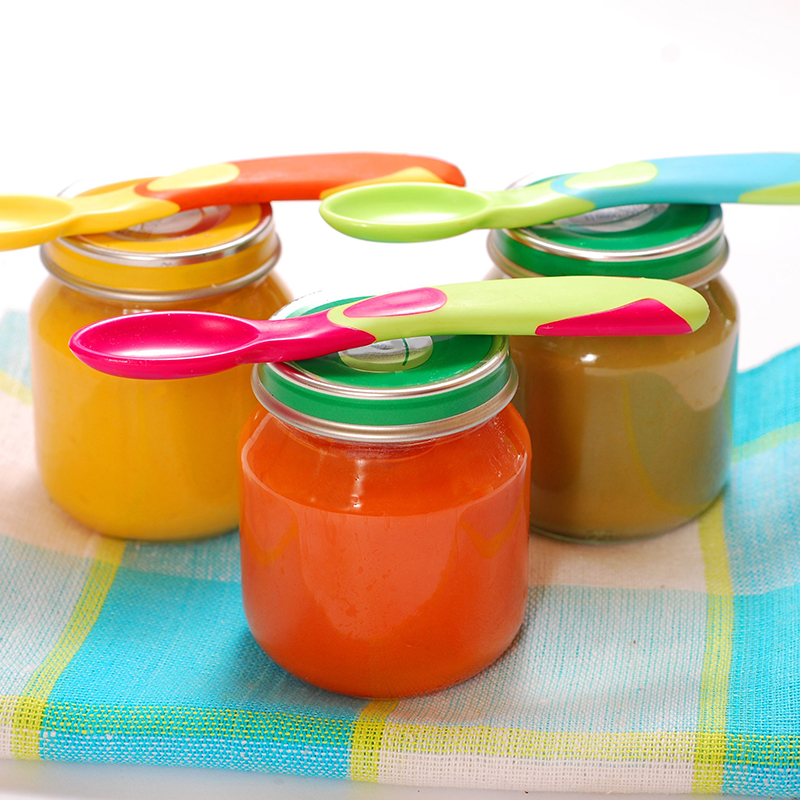 New York Mayor Eric Adams declared a state of emergency in the city due to a shortage of infant formula across the country. This is reported by the agency CNN.
New York Mayor Eric Adams declared a state of emergency in the city due to a shortage of infant formula across the country. This is reported by the agency CNN.
Society 22 May 2022 17:30
The US will import baby food with the help of military transport aviation from Europe
US authorities have arranged for an emergency import of baby food from Europe using military transport aircraft, White House press secretary Karine Jean-Pierre said.
Society May 22, 2022 13:10
American moms fight over the last baby food packages in supermarkets
Ordinary US residents have already felt all the consequences of the anti-Russian sanctions policy of the West.
Politics May 13, 2022 22:24
Psaki angered Americans on her last working day as White House press secretary
White House Representative Jen Psaki provoked a scandal on her last day in office.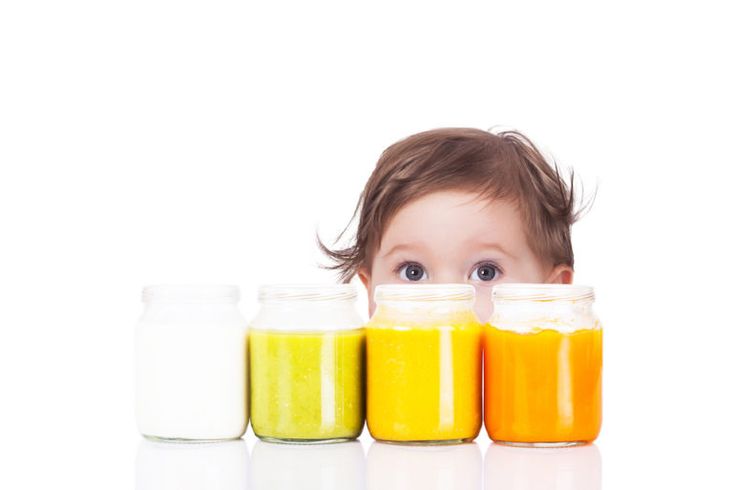 Residents of the United States were outraged by the cynical answer of the press secretary about baby food.
Residents of the United States were outraged by the cynical answer of the press secretary about baby food.
Society May 13, 2022 02:48
Biden took over US infant formula shortage
United States President Joe Biden has announced that he will personally address the country's infant formula shortage. The relevant information was reported in the White House.
Society May 12, 2022 11:52 AM
Anti-Russian sanctions provoked a shortage of infant formula in the United States
Stocks of baby food in warehouses in seven US states decreased by 40%, media reported, citing data from the analytical company Datasembly.
Society April 27, 2022 05:06 PM
In Russia created the basis for hypoallergenic infant formula
Russian specialists have developed the basis for hypoallergenic mixtures used in baby food.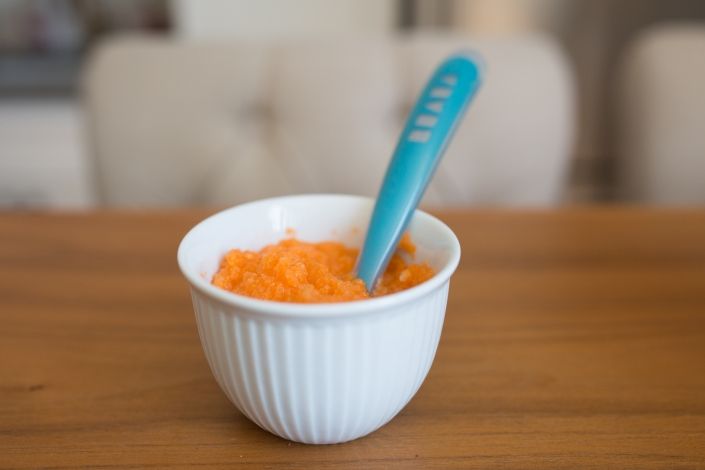
News | RIPI
Why treat rivers? Part 2
News | 2022
October 28, 2022
We invite you to read the second part of the material on the problem of water pollution by pharmaceuticals. It tells about whether there are residues of medicines in drinking water, how international organizations such as WHO treat this, and how this problem is being solved in the world.
Let me warn you right away that the topic is not easy, not intended for superficial reading.
read more...
Why treat rivers?
News | 2022
October 13, 2022
Water and air are the vital resources of mankind, on which the health and longevity of people depend. And although Russia does not belong to countries experiencing water shortages, the issues of the suitability of water for drinking from centralized water supply sources continue to worry Russians.
We are starting a series of publications dedicated to medicinal water pollution prepared by our expert Tatyana Eremenko .
read more...
Honest position on "Honest SIGN"
News | 2022
September 30, 2022
"... It will be honest, correct and fair to recognize as erroneous the mandatory use of the Chestny ZNAK dairy product identification labeling system"
Our partner Voronezh regional public movement for the protection of consumer rights "The Quality of Our Life" published on its website the correspondence with the Ministry of Industry and Trade on the topic "Honest ZNAK" in dairy products.
Continuing the topic raised in the article "How to deal with counterfeiting", we publish the full version of the correspondence between the VROD "The Quality of Our Life" and the Ministry of Industry and Trade.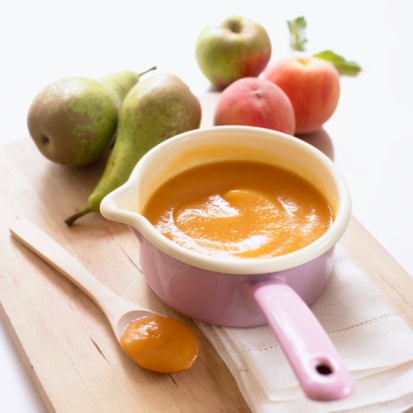
read more...
How to deal with counterfeit goods
News | 2022
August 31, 2022
"Our business still does not shun tricks that allow falsifying products, replacing some ingredients with others. But today we see all production control at the enterprise on electronic systems - whether safety and quality studies were done, in which laboratories, etc. "Electronic systems contain all information about the product from the field to the counter. This is much more efficient than routine checks"
Such a high assessment of the effectiveness of electronic systems was given by the head of Rosselkhoznadzor Sergei Dankvert in an interview with Rossiyskaya Gazeta (link).
The question arises: if electronic systems show the real picture, why do a few public organizations still, during random checks, detect counterfeit products on store shelves and in the public sector?
read more.
..
Why spoiled fruits and vegetables are dangerous
News | 2022, Baby food
July 31, 2022
"... the fruits that the son brings home are always rotten or spoiled"
Continuing the publication of materials on the indicators of verification in baby food ("What needs to be checked in food supplied to kindergartens and schools") RIPI expert Tatyana Eremenko spoke about mycotoxin patulin , its properties, hidden dangers and how it relates to the nutrition of children in schools and kindergartens.
Today, the topic of organizing high-quality and tasty meals for children in educational institutions is more relevant than ever. The demand for normal food products in kindergartens and schools in Russia is huge. At the same time, there are enough responsible manufacturers, food suppliers and own resources to provide healthy nutrition for children.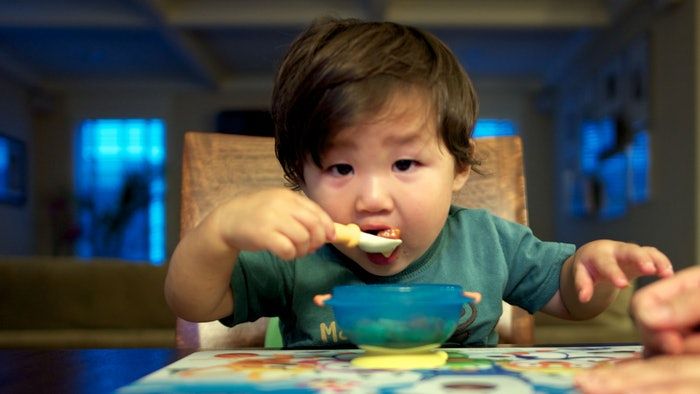 However, based on the results of our numerous surveys of parents and children (2020, 2021), contrary to all regulatory documents and common sense, it happens that children get on the table, to put it mildly, something that is subject to immediate disposal.
However, based on the results of our numerous surveys of parents and children (2020, 2021), contrary to all regulatory documents and common sense, it happens that children get on the table, to put it mildly, something that is subject to immediate disposal.
read more...
School is not only education
News | 2022, School meals
June 27, 2022
At the end of May, a round table of the Just Russia - For Truth faction was held on the topic "All-Russian Parents' Meeting. Parents' Manifesto on the Future of the Modern School" (more).
We bring to your attention the transcript of the speech of the Head of the Committee for the Safety of Products for Children and Adolescents in the Consumers Association, RIPI expert Kovalenko Inna Stanislavovna.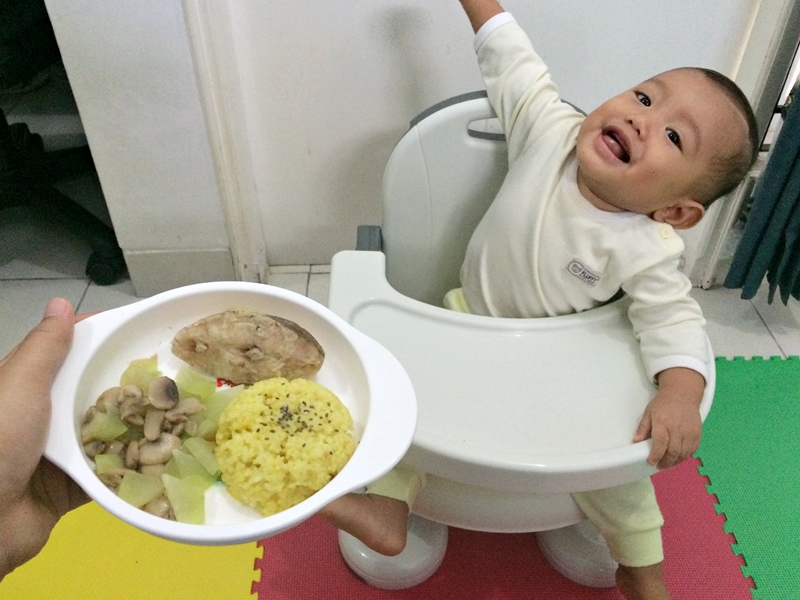
read more...
Turning point in the relationship between the parent community and officials
News | 2022, School meals
May 26, 2022
On May 20, 2022, a significant event took place in the Small Hall of the State Duma - a "Round Table" on the topic: "All-Russian Parent Meeting. Manifesto of Parents on the Future of the Modern School" . Representatives of the Ministry of Education, deputies of the State Duma, experts, lawyers, doctors, psychologists and parents have gathered here for an open dialogue and search for new points of public consensus on what a modern school should be like.
Our expert Kovalenko Inna Stanislavovna , hygienist, epidemiologist, educational psychologist and public figure took part in it.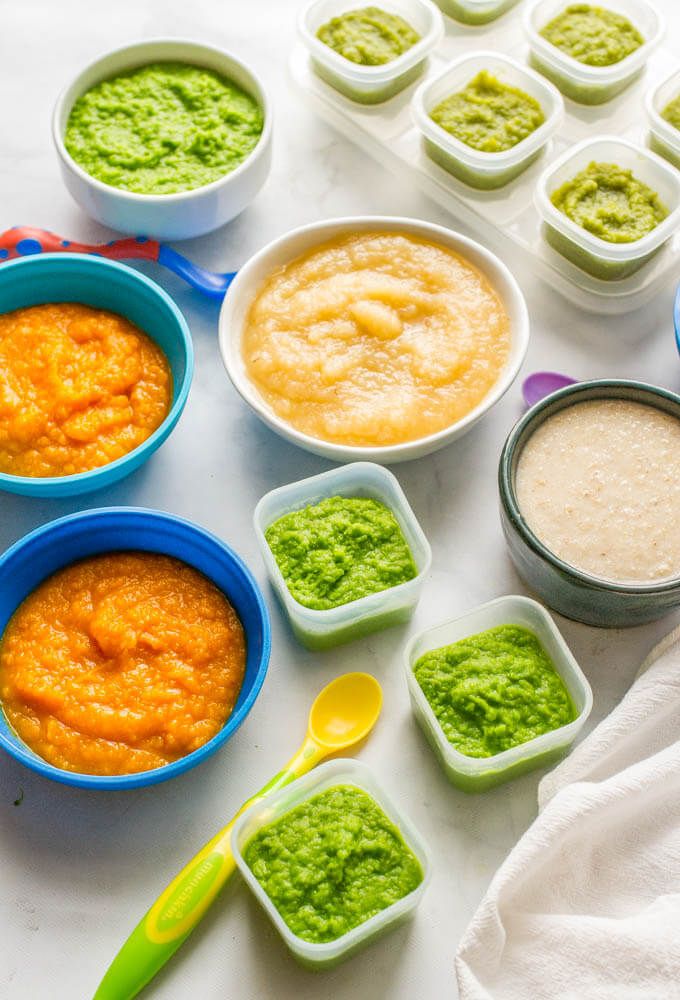 Her speech was dedicated to the fact that children need a new menu . That it is necessary to conduct research on eating habits and draw up a new menu for school meals. Ukrainian schoolchildren were provided with such a menu, many children who ended up in Russian schools regret their school burgers. And none of the adults thought about why children began to give these burgers?! And they began to give them so that they liked it, they wanted to go to a school where they taught an ugly, Russophobic, misanthropic ideology. If you don't lure, you won't teach.
Her speech was dedicated to the fact that children need a new menu . That it is necessary to conduct research on eating habits and draw up a new menu for school meals. Ukrainian schoolchildren were provided with such a menu, many children who ended up in Russian schools regret their school burgers. And none of the adults thought about why children began to give these burgers?! And they began to give them so that they liked it, they wanted to go to a school where they taught an ugly, Russophobic, misanthropic ideology. If you don't lure, you won't teach.
read more...
Results of an independent survey of parents on school meals
News | 2022, Baby food, School meals
May 25, 2022
in the regions of the Russian Federation. Hotline for parents".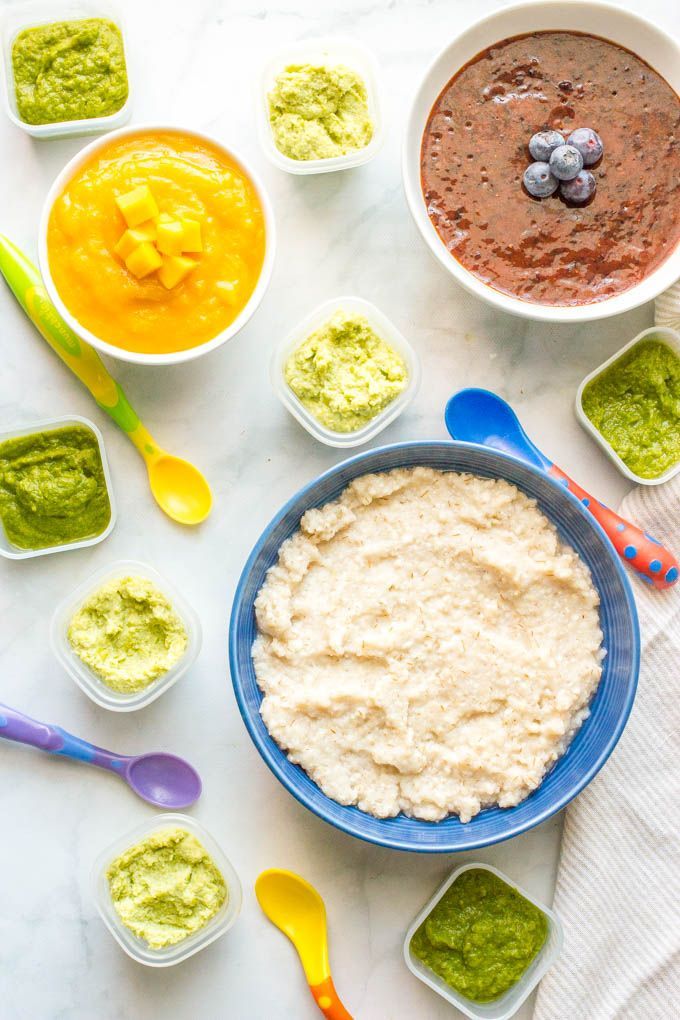 During the work on the project, more than 20 thousand citizens, mainly from 3 regions of the Russian Federation, applied to RIPI, where we managed to widely disseminate our questionnaire and information about the hotline among schools. More than 3 thousand parents were dissatisfied with the quality and organization of food. A detailed report can be viewed on the website ("Grant 08/01/2020 - 06/30/2021").
During the work on the project, more than 20 thousand citizens, mainly from 3 regions of the Russian Federation, applied to RIPI, where we managed to widely disseminate our questionnaire and information about the hotline among schools. More than 3 thousand parents were dissatisfied with the quality and organization of food. A detailed report can be viewed on the website ("Grant 08/01/2020 - 06/30/2021").
read more...
Parents of children with allergies contact us
News | 2022, Baby food
May 18, 2022
" After changing the food supplier, the child developed an allergy, which subsides on weekends and resumes when visiting the kindergarten. I would like to understand the composition and additives in baby food to identify a possible allergen.
"
Such a request came to RIPI for laboratory testing of food from kindergarten.
Food allergy is a pressing problem for many, so we publish a commentary by RIPI expert Tatyana Eremenko , in which she gives advice on what parents should do in such a situation.
read more...
"To what extent it is necessary to cook tasteless..."
News | 2022, Baby food, School meals
May 11, 2022
"Food in the school cafeteria DOES NOT PERFORMLY CORRECT with the stated approximate twelve-day cyclical menu of breakfasts, lunches and afternoon snacks..."
This is the request that came to the DEMAND Hotline from the mother of a schoolboy from a Russian city.